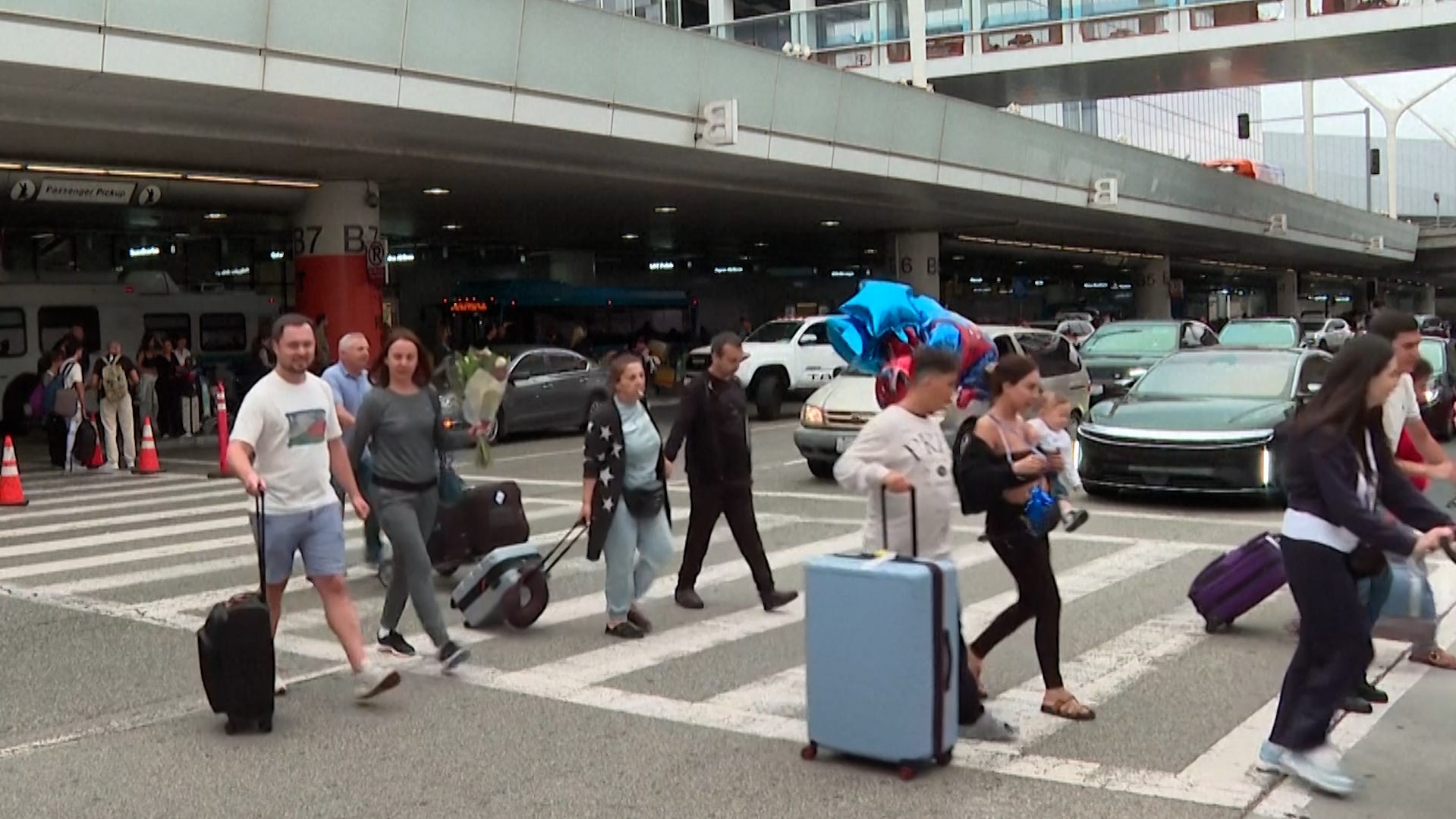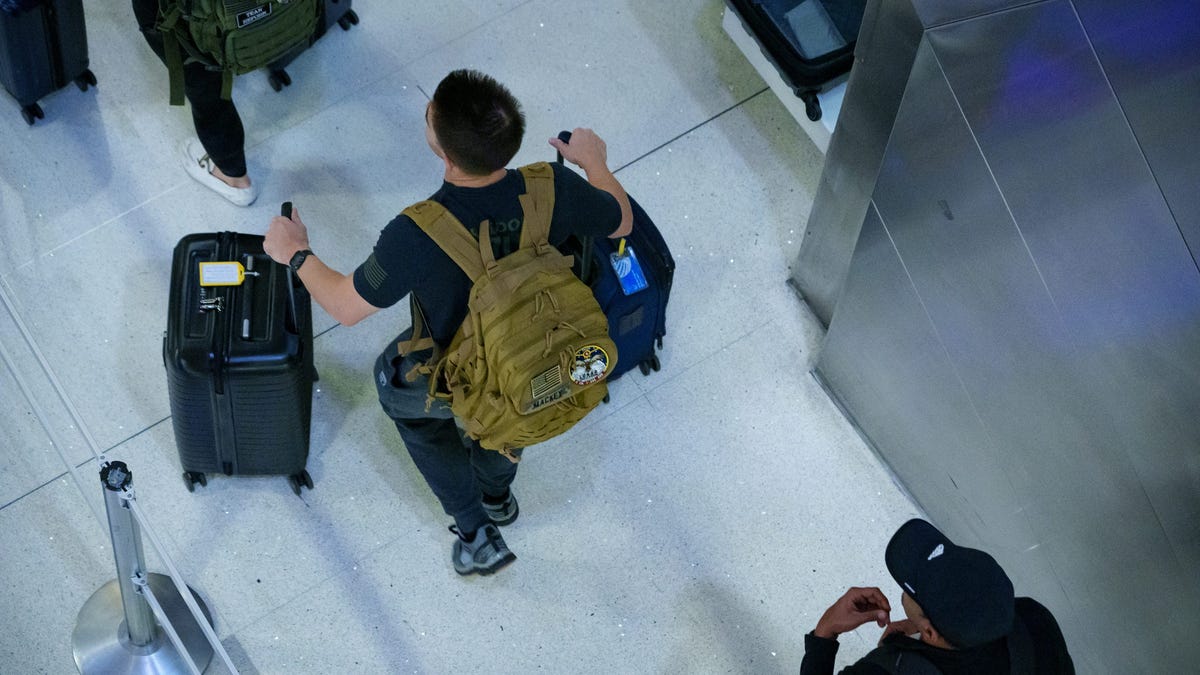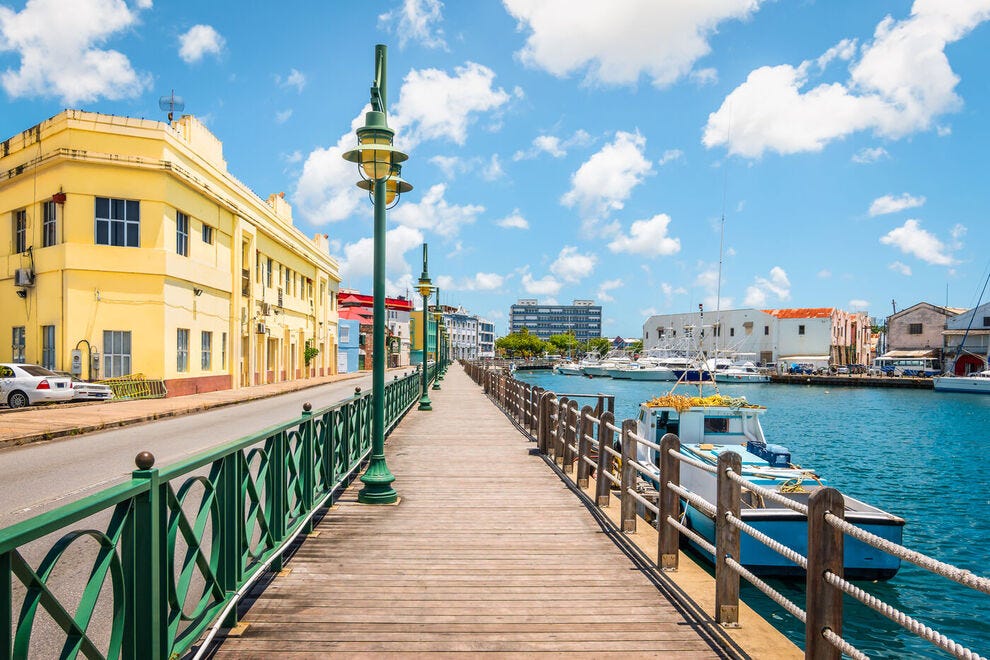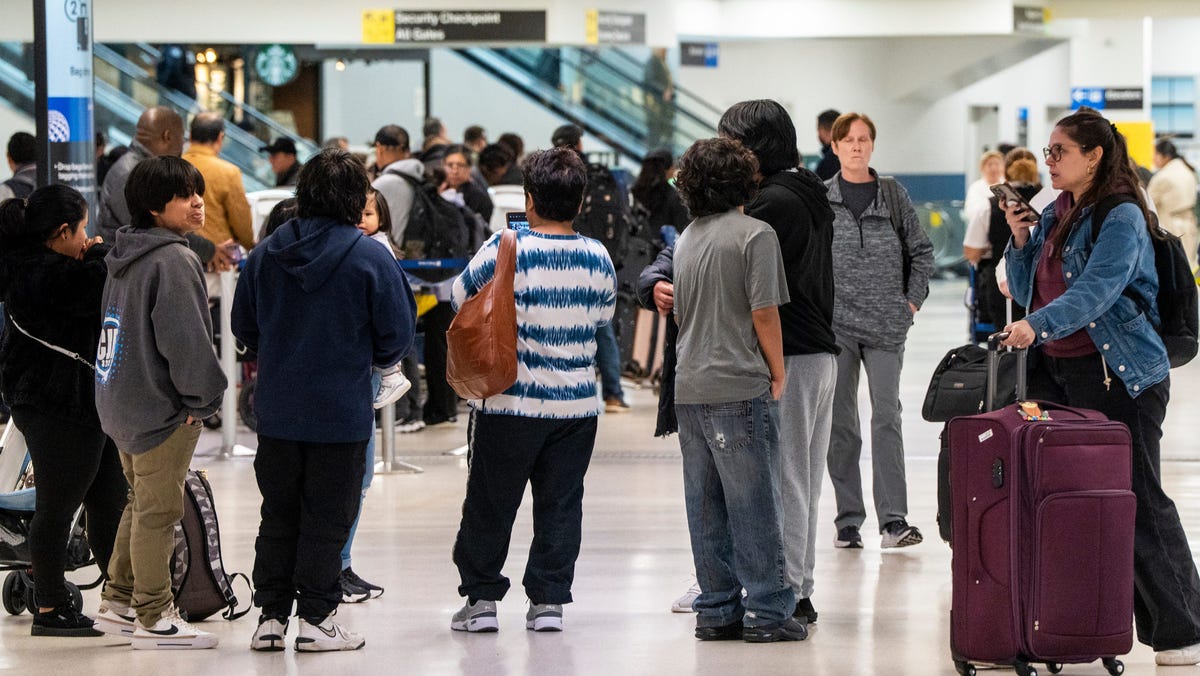
Travelers react to the latest travel ban from President Trump
“Pros and cons.” Travelers in Los Angeles responded to the news of President Donald Trump’s travel ban impacting nearly 20 countries.
- President Donald Trump announced a new travel ban affecting 19 countries.
- The ban prohibits entry for most foreign nationals from 12 countries and suspends travel for those from 7 others.
- Experts warn the ban could negatively impact the U.S. economy and separate families.
President Donald Trump announced a new travel ban on Wednesday evening that will bar most visitors from 12 countries and restrict those from seven others.
The ban, which goes into effect at 12:01 a.m. ET on June 9, prohibits travel into the U.S. for foreign nationals from Afghanistan, Burma, Chad, the Republic of Congo, Equatorial Guinea, Eritrea, Haiti, Iran, Libya, Somalia, Sudan and Yemen.
It also includes travel suspensions for Burundi, Cuba, Laos, Sierra Leone, Togo, Turkmenistan, and Venezuela nationals.
How could the ban affect travelers who already have tickets
Even for travelers who already have tickets and documents to enter the U.S., the ban is likely to cause issues.
“They’re not getting in on Monday unless they qualify for one of the very rare exceptions, which include diplomats, people aligned with NATO, athletes and those with extenuating family circumstances,” Michael Wildes, managing partner of Wildes and Weinberg, PC, a law firm that focuses on immigration, told USA TODAY. “They may have a hard time getting in even before Monday.”
Wildes said he’s advising clients from the affected countries not to travel to the U.S. until further notice.
“I caution them not to travel and then be turned around because that would terminate their visas effectively,” he said. “They will develop an immediate adverse history once they’re denied admission,” which would also make future visa applications and visits much more complicated.
Wildes added that he expects the ban will eventually end up in court, but that process could take weeks or months to play out. He suggested that travelers covered by the ban not try to enter the U.S. in the meantime.
Economic impact of Trump’s travel ban
Experts are warning that the ban could also have a significant economic impact as well.
“President Trump’s decision to reimpose and expand the blanket and discriminatory nationality-based travel bans of his first term will have massive costs for all Americans,” Jeremy Robbins, executive director of the American Immigration Council, said in a statement. “These travel bans do nothing to make us safer or more prosperous: they harm our economy and indiscriminately punish immigrants who otherwise qualify to come to the United States legally.”
The organization’s statement noted that more than 115,000 green cards were issued to people from Cuba, Venezuela and Haiti alone in 2023.
Alex Nowrasteh, vice president for economic and social policy studies at the Cato Institute, said in a writeup that the travel ban is unlikely to have a significant impact on national security.
“The government should pursue a rational and evidence-based approach when evaluating the threat posed by foreign nationals. Otherwise, the government is wasting resources and impeding peaceful and voluntary exchange for no purpose,” Nowrasteh wrote. “The threat of foreign-born terrorism and crime is manageable and small, especially from the countries facing new bans and restrictions by the administration.”
Wildes likewise warned that the ban could have negative economic consequences and affect families whose loved ones are covered by the policy.
“It will have a serious emotional and economic effect on our nation,” he said.
Which nationals are barred from entering the US?
The full travel ban applies to nationals of the following 12 countries:
- Afghanistan
- Burma (Myanmar)
- Chad
- Republic of the Congo
- Equatorial Guinea
- Eritrea
- Haiti
- Iran
- Libya
- Somalia
- Sudan
- Yemen
Additionally, partial restrictions are imposed on nationals from:
- Burundi
- Cuba
- Laos
- Sierra Leone
- Togo
- Turkmenistan
- Venezuela
Zach Wichter is a travel reporter and writes the Cruising Altitude column for USA TODAY. He is based in New York and you can reach him at zwichter@usatoday.com.










